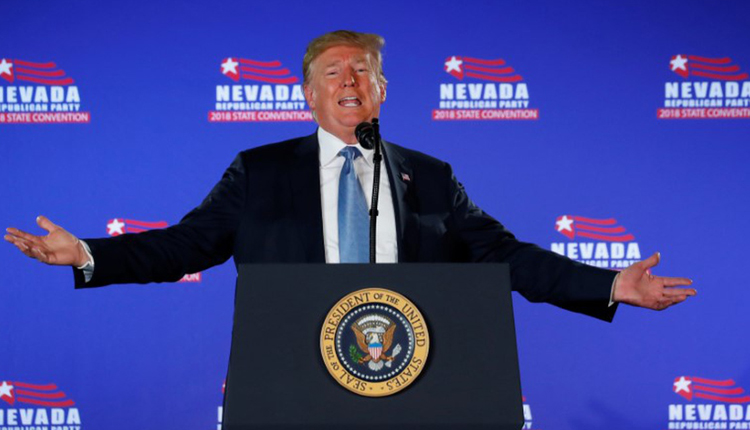U.S. President Donald Trump launched a scathing attack on German support for one of the most contentious energy developments in Europe on Wednesday, saying Germany is “totally controlled” by Russia.
Speaking in Brussels, Belgium on the first leg of his European trip, the U.S. president said a flurry of oil and gas deals had given Moscow far too much influence over the continent’s largest economy. In particular, he singled out the Nord Stream 2 gas pipeline project as being especially “inappropriate.”
“Germany is totally controlled by Russia … They will be getting between 60 and 70 percent of their energy from Russia and a new pipeline, and you tell me if that is appropriate because I think it’s not,” Trump said, before criticizing Berlin’s failure to significantly increase defense spending.
Trump was speaking at a press conference Wednesday morning in front of NATO representatives ahead of a two-day summit.
“I think it is a very bad thing for NATO and I don’t think it should have happened and I think we have to talk to Germany about it. On top of that, Germany is just paying a little bit over 1 percent (on defense) … And I think that is inappropriate also,” he added.
The Nord Stream 2 gas pipeline is an $11 billion project directly connecting Germany with Russia. Critics argue that the pipeline — which is to be laid under the Baltic Sea — will increase Europe’s dependence on Russian gas. A number of other EU states have also flagged national security concerns.
Nonetheless, German Chancellor Angela Merkel has previously expressed support for the project and insisted it is a private commercial venture.
Trump is scheduled to meet Merkel later on Wednesday, before sitting down with Russian President Vladimir Putin in Helsinki, Finland on Monday.
‘An attack on Germany and Russia’
Trump has long criticized Berlin and other NATO allies for “freeriding” on Washington’s defense capabilities. Currently only five of NATO’s 29 member states actually allocate the 2 percent of their gross domestic product (GDP) to military spending that they are formally committed to as part of the alliance. Those five are the U.S., the U.K., Greece, Estonia and Poland.
In May, Germany pledged to increase its defense spending to 1.5 percent of GDP by 2025, up from a low of 1.1 percent in 2015.
The Trump administration’s policies indicate it views security and trade as intimately linked. And when it comes to the trade balance, no ally will be spared.
The U.S. president frequently laments Germany’s trade surplus with the U.S., and has threatened to slap tariffs on German cars, which would strike at the heart of the country’s export-led economy. Trump has already enacted sweeping steel and aluminum tariffs on all exporters to the U.S., including the EU, which had been temporarily exempt.
For Michael Browne, a fund manager at London-based investment firm Martin Currie, Trump’s comments would do little to deescalate trade tensions.
“That was an attack on Germany and an attack on Russia,” Browne told CNBC’s “Squawk Box Europe” moments after the president’s comments on Wednesday morning.
“What Trump is saying is ‘I can’t control Russia, unless I can control Germany pumping money into Russia.’ That says to me that the attitude of Trump’s administration in terms of tariffs towards Germany, which means autos, is going to be really tough.”
Source: CNBC
